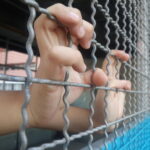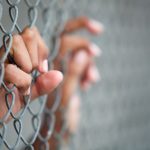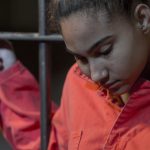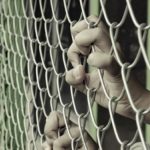Independent OPCAT Inspections Will Improve the Plight of Youth Detainees
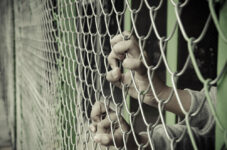
Situated in the northern NSW town of Grafton, the Acmena Youth Justice Centre is one of six juvenile prisons being operated by Youth Justice NSW. At capacity, it holds 45 boys between the ages of 10 to 21 years. Over two-thirds of the youths are First Nations. And over half are on remand.
On inspecting the centre in late July 2019, the NSW Inspector of Custodial Services found the use of confinement at Acmena “was of concern”, as youths being held in isolation were regularly having their mattresses and bedding withheld in an illegal manner.
Staff were also cutting off the water in cells where kids were being confined. This measure was evidently applied to stop the children from flooding the rooms, but it was also found to be preventing them from drinking fresh water, showering or flushing the toilet after use.
“Of greater concern,” states the recently released Inspection of Six Youth Justice Centres in NSW report, is that the young people are left for the entire confinement period without bedding or any activities to undertake, while toilet paper is doled out to them.
“This treatment of a child is degrading,” the document adds.
The NSW inspector carries out youth facility inspections every three years. However, the new report reveals that recommendations haven’t been properly implemented since earlier inspections.
So, it seems the soon to be introduced independent OPCAT inspection system will be a welcome addition.
Self-scrutiny unfruitful
“The report highlights and provides evidence of issues of concern and where possible makes or reiterates past recommendations in a constructive manner,” said Australia OPCAT Network coordinator Steven Caruana.
“Taken in its entirety,” he continued, “the report makes a convincing inference that the issues of greatest concern often correlate to those centres where staff continue to operate from a ‘disciplinarian’ culture.”
Caruana pointed out that much of the staff were found to hold the view that youths demonstrating high risk behaviours should be detained in a “specifically designed centre”, yet, at the same time, the report outlined that these same employees hadn’t been trained to deal with such behaviour.
Further issues that Caruana raised included Acmena’s practice of distributing second-hand underwear for youth inmates to wear, as well as a lack of formal complaint systems in some facilities, which has left those centres unable to identify their own areas for improvement.
“These issues together demonstrate the importance of external accountability but also raise important questions about Youth Justice NSW’s own capacity to monitor its systems and practices,” he told Sydney Criminal Lawyers.
Strip searching kids
There has been a lot of controversy over recent years around the application of strip searches by NSW police. This has been due to the huge uptick in the practice. And the concerns around basic rights and dignity have extended to the use of strip searches on the inside.
On skimming the NSW custodial inspector’s youth justice report, it appears that authorities aren’t making children take their clothes off to ascertain whether they might be concealing something on their person. At least, that’s until you read between the lines.
Youth Justice NSW is regularly applying what it terms as partially clothed body (PCB) searches.
This means that children as young as 10 are being required to remove their clothes so their naked body can be inspected, but a youth only removes the top half of their clothing and replaces it before going on to remove the bottom half.
So, this might appear that authorities aren’t strip searching youngsters, but that’s until consideration is given to the way adult women in NSW correctional facilities undertake the invasive procedure, as they’re also required to first take off one half of their clothes, before taking off the next half.
Corrective Services NSW defines what Youth Justice NSW calls partially clothed body searches as full strip searches. And both these agencies are administered by the NSW Department of Communities and Justice.
The report also finds that children are being subjected to these procedures sometimes on a routine basis before and after visits, which is specifically against regulations.
The NSW Inspector further pointed out that over the 12 months to May last year, Cobham youth facility carried out 3,939 PCB searches, which only turned up 23 contraband items. This would indicate that adult staff members are getting kids to strip off as an act of general deterrence.
“The most disappointing aspect of the issue”, according to Caruana, is that the way partially clothed body searches were being applied was raised by the inspector in two earlier reports – back in 2015 and 2018 – yet nothing had changed.
“It should not take five years and three reports for Youth Justice NSW to make changes and follow its own legislation,” he stressed. “It is frankly inexcusable.”
Preventing future abuse
In late 2016, then federal attorney general George Brandis confirmed that this country would be implementing the United Nations monitored OPCAT system of independent inspections of its places of detention.
Australia had signed the international protocol back in 2009, but it took a further seven years to take the next step.
In preparation for the coming OPCAT system, the Victorian Ombudsman in 2017 trialled this preventative type of detention facility monitoring at that state’s main prison for women, the Dame Phyllis Frost Centre.
And if that’s anything to go by, Caruana continued, “we can expect a focus of OPCAT inspection bodies to minimise and/or abolish routine and invasive body searches”, as that was one of the main recommendations the Victorian Ombudsman made and ensured was followed through on.
As a Churchill Fellow, Caruana travelled to several European nations and New Zealand in 2017 to inspect how the already implemented OPCAT system was operating in those countries.
Following the trip, Caruana explained that what makes this system so successful is its preventative approach, which sees facilities inspected for potential human rights abuses and reforms then implemented before any breaches take place.
“In the context of NSW, while the OPCAT inspections do not officially come into effect until 2022, there is nothing, in my view, stopping Youth Justice NSW from complying with its very own legislation,” Caruana made clear.
“It would be an absolute failure to our young people if they must wait any longer to be treated with dignity.”


